The silent crisis haunting our dads
A HIDDEN epidemic of postnatal depression in new dads has been exposed by a parliamentary inquiry with experts calling for more help for the one in 10 fathers affected.
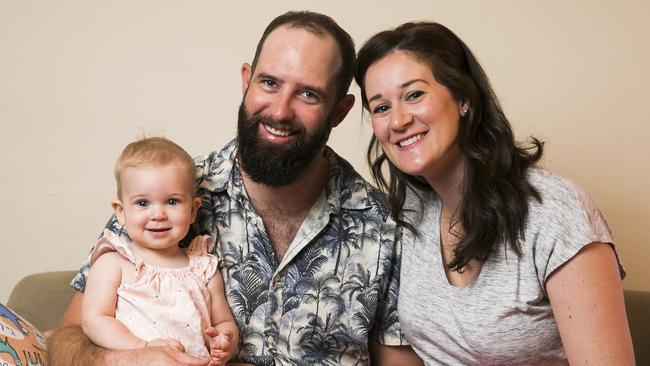
NSW
Don't miss out on the headlines from NSW. Followed categories will be added to My News.
A HIDDEN epidemic of postnatal depression in new dads has been exposed by a parliamentary inquiry with experts calling for more help for the one in 10 fathers affected.
A raft of health organisations say that while PND — or the baby blues — is well-known in women there is an unspoken crisis surrounding the mental health of fathers.
Associate Professor Richard Fletcher from the University of Newcastle said in his submission to the NSW parliamentary community services committee that policy makers, clinical staff and even some dads themselves were unaware they may experience PND.
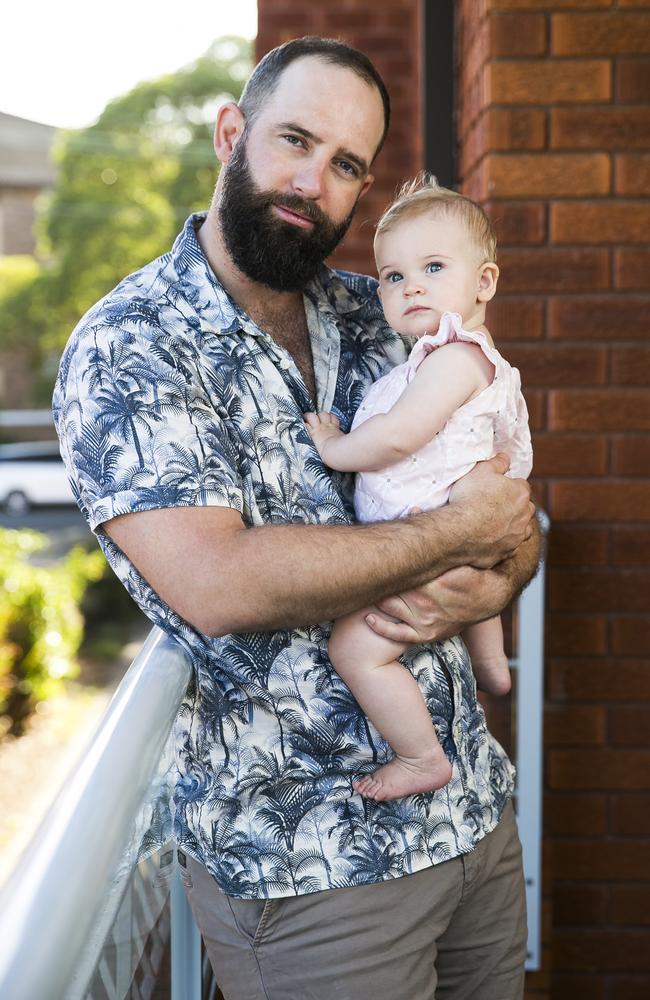
A National Perinatal Depression Initiative enables women to be screened for depression once during pregnancy and about four to six weeks after birth but there is no equivalent option for men.
Yet 10 per cent of men struggle with anxiety or depression in the year following the birth of their baby, according to Perinatal Anxiety and Depression Australia.
RELATED NEWS
► Bullies push new mums to post-natal depression
► Neighbours, teens come to mum’s rescue
► ‘I couldn’t stop thinking about death’
New national peri-natal mental health guidelines issued last October acknowledge that paternal depression may have an adverse affect on a child’s wellbeing.
They cite US research showing depressed fathers were four times more likely to spank their one-year-old infants and less than half as likely to read to them. Other studies showed children of PND-affected fathers were more likely to exhibit behaviour problems as a preschooler and to receive a psychiatric diagnosis by age seven.
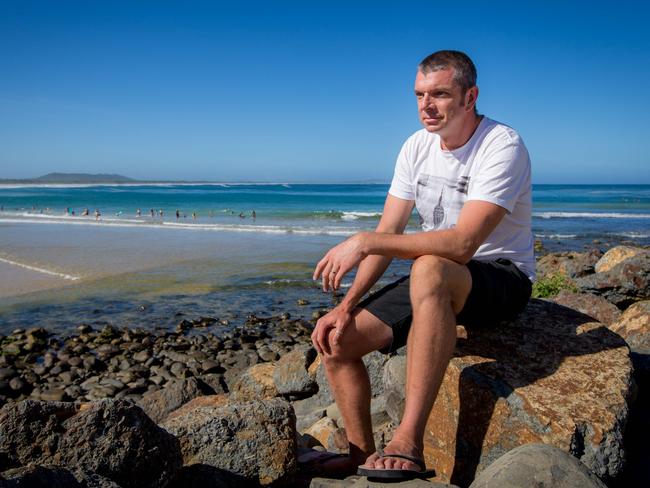
But the guidelines acknowledge that fathers have few opportunities to raise their concerns and “nurses find that to include fathers when screening mothers (for PND) is a challenge”.
The Royal Australian and New Zealand College of Obstetricians and Gynaecologists noted in its submission to the committee that fathers “want to be included in peri-natal health care” and engaged by professionals about their health and wellbeing.
EDITORIAL: Dads need support too
Associate Professor Fletcher, of Newcastle’s faculty of health sciences, said he would like to see health services adopt new technologies that support dads such as his SMS4dads phone service.
The service sends positive texts to new and expecting dads using sounds of the baby to help build the paternal connection. He insisted fathers shouldn’t be seen as simply “a helper” to mothers given the overwhelming evidence of paternal impact.
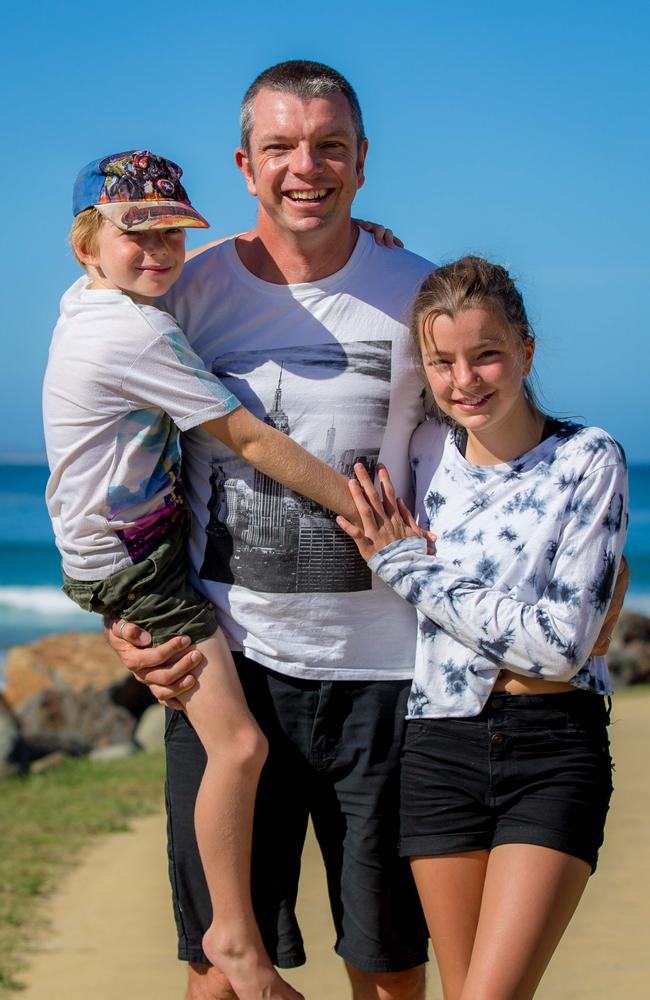
“If he’s depressed before the birth, it could increase the chances of a premature baby. It could also increase the chances of the mother getting depressed and the chances of the children having behavioural problems and cognitive difficulties,” he said.
Terri Smith, CEO of Perinatal Anxiety and Depression Australia, said there was a significant knowledge gap in understanding how PND could occur in both parents. “It’s universally difficult for men to talk about their needs.”
Professor of Midwifery Hannah Dahlen from Western Sydney University said more dads were now experiencing post-traumatic stress disorder, associated with depression, from witnessing traumatic births.
“We need to say to men, ‘It’s okay, you went through this too — you can’t ever be an unemotional bystander in this,’ ” she said.
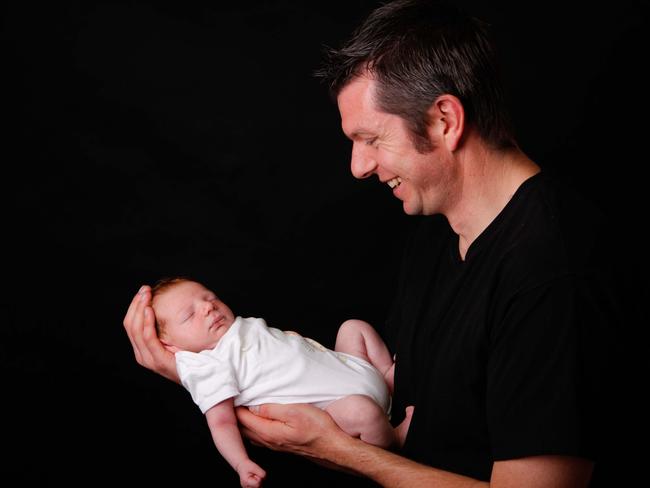
Father-of-two Israel Smith, 40, suffered severe PND after the birth of his son in 2010.
“It took a while for me to get my own head around it ... a bloke getting PND, how does that work? It wasn’t so much the fault of my son being born or arriving, as much as the changes it brought about in our family.”
Jordan Edmondson, 31, of Ashfield, who went from working full-time to prime carer for daughter Piper, said it was a difficult transition.
“There always is that stigma of you don’t talk about your feelings — you well them up and go from there,” he said.
NSW Health Minister Brad Hazzard said the government would continue to help mums but would take on board recommendations about fathers.
“This shifts some of the focus to NSW dads and I don’t think it will come as any surprise that the considerable change in the family situation may well have major effects on the dad and therefore family relationships,” he said.
If you or someone you know is experiencing postnatal depression, call the PANDA helpline on 1300 726 306.


